For some users who own a Dell PC when running the PC Heath Check the app to check if their PC can run Windows 11, it says:
“This PC doesn’t currently meet Windows 11 System requirements” with a reason “TPM 2.0 must be supported and enabled on this PC, TPM: TPM Not Detected“

Apart from that, if you launch Device Manager and locate devices, you will notice that Security device are missing from the list. And if you select “Show hidden devices“, then you will find out Trusted Platform Module 2.0 is disabled.
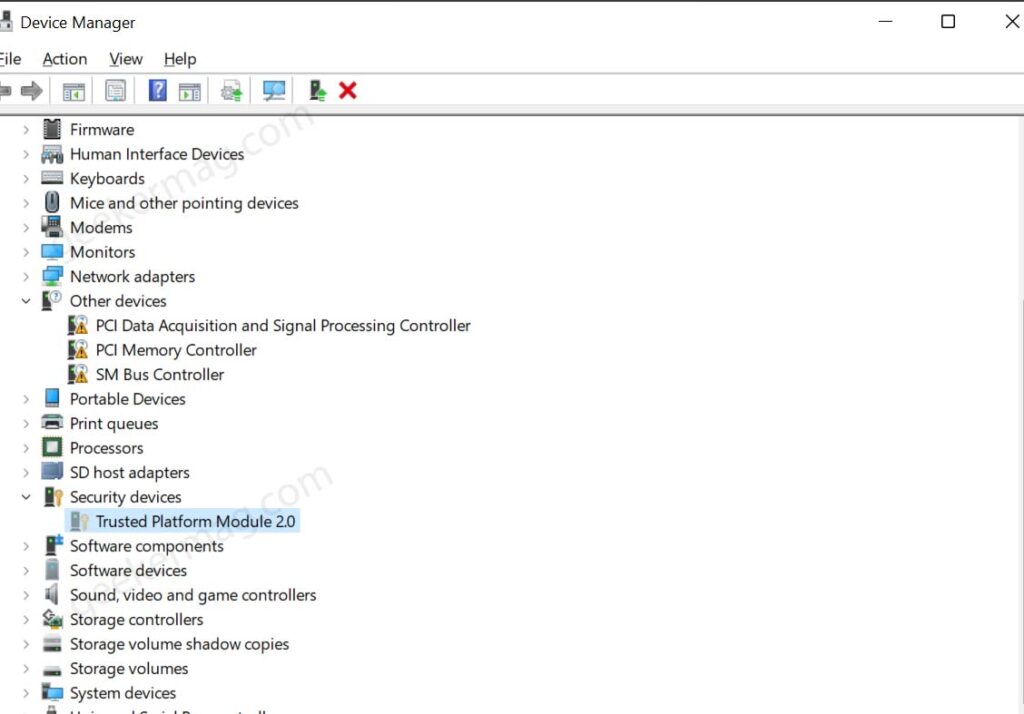
According to reports from various users on the Dell forum, the manual for particular devices states that their device supports the TPM feature and is enabled out of the box. The issue of popular amount XPS 8000 series or 8930. Affected users have no idea about what causing the issue and how to fix it.
If you have been facing the same issue, and want to enable TPM on your Dell XPS 8000, Series, Dell 8930, or other Dell devices, then the following blog post has solutions on how to fix this issue.
Enable TPM 2.0 in BIOS Dell PC 8930
First of all, you need to boot into BIOS on your PC. For that, Press the Power Button to turn on your laptop. As soon as your laptop shows the Dell logo, press the F2 button, and you will be headed to the BIOS menu.
In the BIOS menu, switch to the Boot Sequence option and select the UEFI option When a dialog box appears asking for the confirmation, click OK to apply the changes.
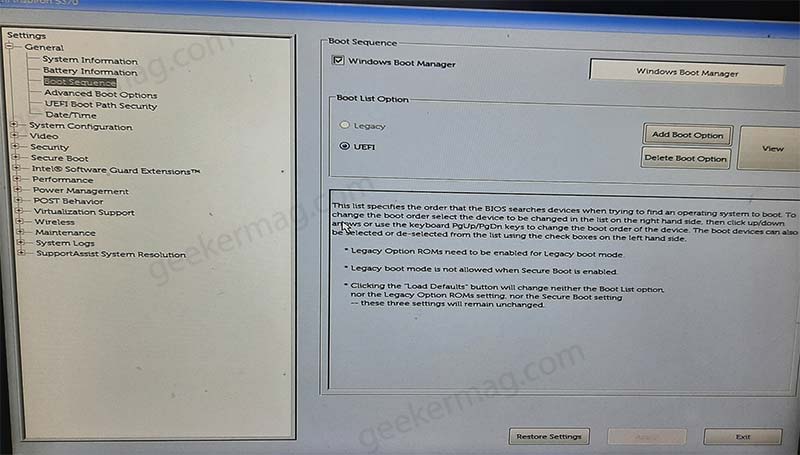
Next, Switch to Advanced Boot Options. Here, uncheck the box for “Enable Legacy Options Roms” and then click Apply.

Note – It is possible that you might see different options, what you need to achieve is to disable Legacy Boot options.
Again, when a dialog box appears asking for confirmation, click OK to apply the changes.
Next, head over to the Security tab and then select PTT, and click Apply. When click OK in the confirmation dialog to apply the changes.
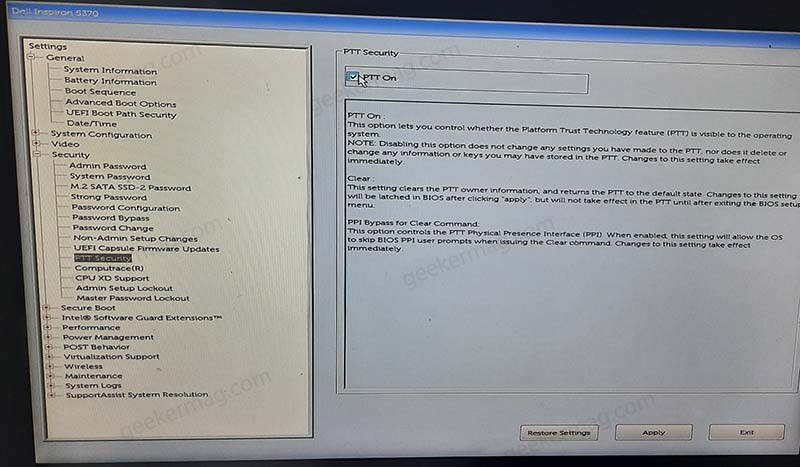
This step is optional: Next, Switch to Secure Boot > Secure Boot Enable. Make sure, this option is enabled. If not, click on Apply button and again confirm the action.
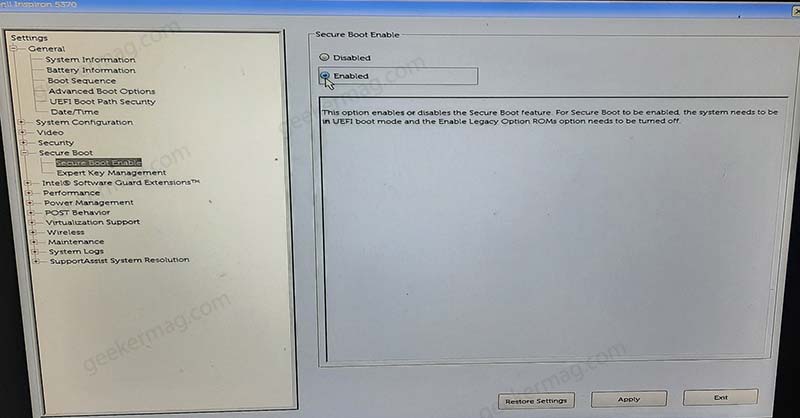
Once done, press the F10 button on your keyboard to save the changes you made and exit the BIOS menu.
After doing this, your PC will boot in Normal Mode and this should enable the TPM 2.0 feature on your Windows 10 PC. Now if run the Microsoft Tool again. TPM 2.0 will be enabled on your laptop, and you will no longer face the issue.
From the options available switch to “Change boot mode settings“.
In case, the issue is still not fixed, then reboot your computer, and when the Dell logo appears press F12 key to reach the One-Time Boot menu.
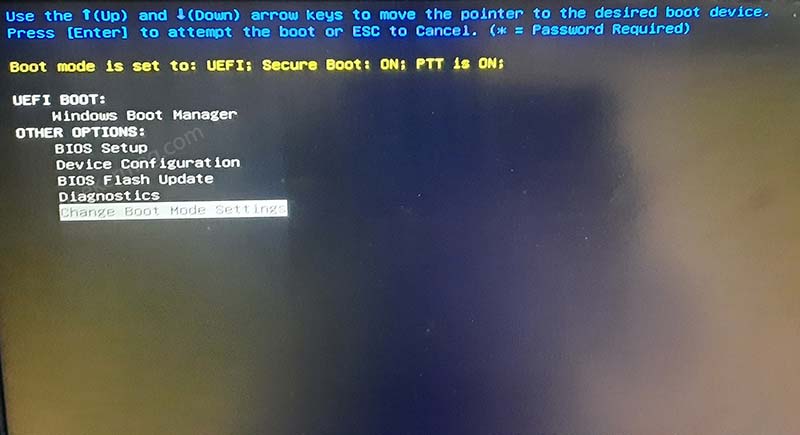
On the next screen, you need to make sure that your device status is “Boot mode is set to: UEFI: Secure Boot: ON, PTT: ON” (In Yellow color shown in the screenshot)

At the bottom of the screen, head over to the Change boot mode section, and under it select “UEFI Boot mode, Secure boot off” and hit enter.
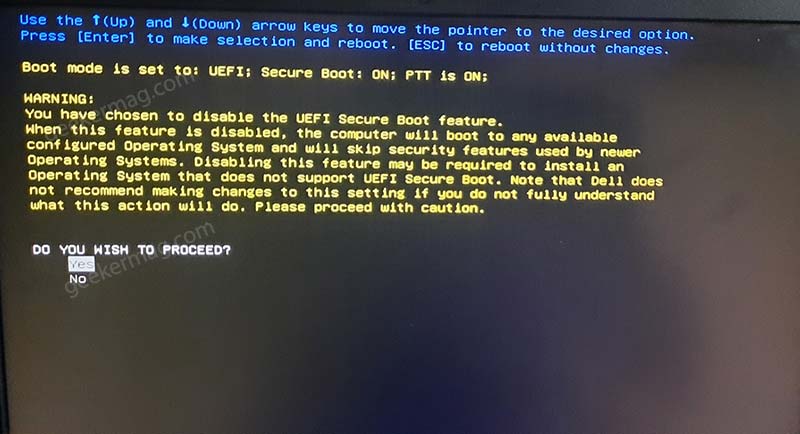
When you receive a screen, you wish to proceed, click Yes.

In the Final confirmation page, select Apply the changes option. This will restart your device.




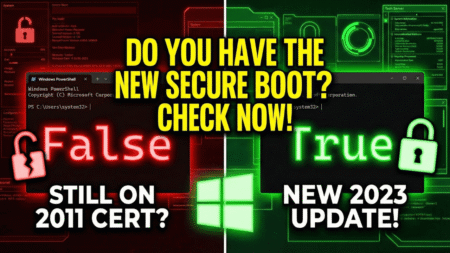

2 Comments
thanks a lot, it really was exactly what I was looking for, best wishes!!!!
I’m glad the solution suggested in this blog post fixed the issue for you. Keep visiting for getting solutions for similar issues. 🙂